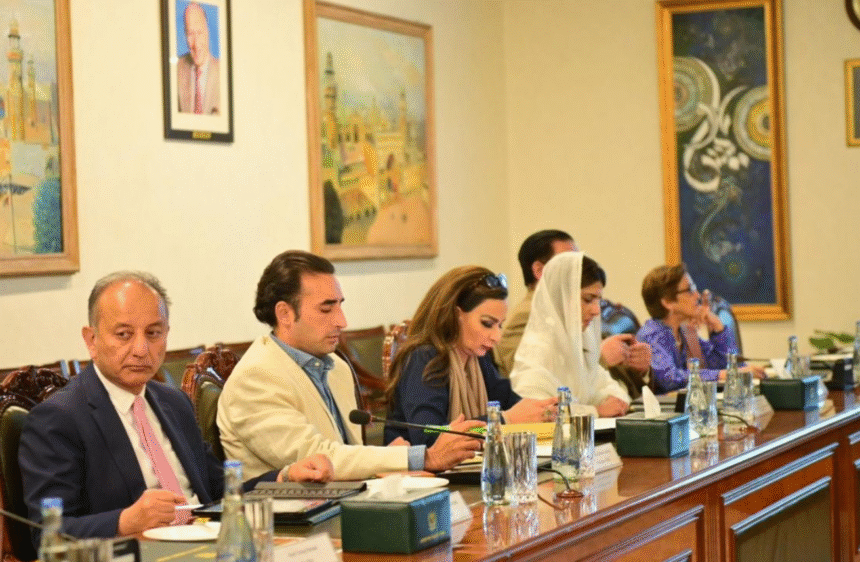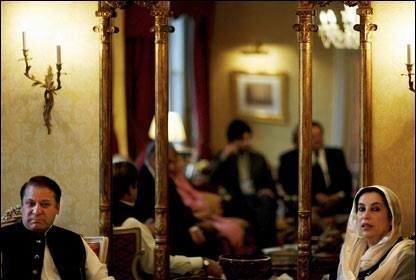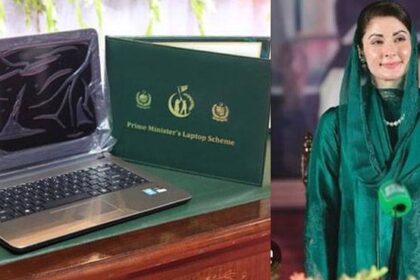From the shadow of stigma to the seat of power, Pakistan’s journey on the global stage resonates as a remarkable diplomatic turnaround. There was a time when Pakistan was being widely accused of being a state sponsor of terrorism in the post-9/11 world, even being referred to as the “home of terrorism” in international media.
Pakistan is now seated as the Vice Chair of the UN Security Council’s (UNSC) Counter-Terrorism Committee (CTC), making efforts in reshaping the global discourse on counter-terrorism at the international stage by proposing reforms in the global narratives and frameworks.
On 30th June 2025, Pakistan’s Permanent Mission to the UN issued a press release, providing details regarding Ambassador Asim Iftikhar Ahmad’s remarks at the UN headquarters.
Ambassador Asim stated:
“We must also clearly distinguish between terrorism and the legitimate struggle against foreign occupation and the right to self-determination. The UNOCT must also integrate respect for human rights and [the] rule of law to prevent abuse of counterterrorism actions by member states. The more we shy away from addressing these issues, the more prolonged our counterterrorism efforts will be.”
This highlights Pakistan’s bold stance on the global stage against the selective approach to counter-terrorism, which has led to abuse of international counter-terrorism laws by various countries.
Moreover, it was also detailed in the press release that Pakistan has called for a balanced approach towards counter-terrorism efforts and to address the prolonged conflicts in order to eliminate vices like injustice and oppression at the international level.
Furthermore, it has long been a concern that international law, being weak in enforceability, has been abused on various instances. Therefore, Ambassador Asim “proposed the establishment of a subsidiary body as an intergovernmental framework under the UNGA to oversee its universal consideration.”
Pakistan has been labelled as a safe haven for terrorists, while for far too long Pakistan has been the primary victim. As per international media reports of 2021, terrorism cost Pakistan more than 83,000 lives and 126.79 billion dollars in the last two decades.
It was also urged by Mr. Asim that the international community should combat all forms of terrorism through collective action by the international community, free from double standards and partiality.
While highlighting the growth in non-Muslim extremist, right-wing, and fascist movements across various countries, he was quoted as saying:
“We see a strong inclination to see non-Muslim acts of terrorism as just violent crime.”
This resonates with Pakistan’s previous continuous effort to redefine the global narrative on terrorism. Previously, Pakistan on various occasions raised its voice against the one-sided definition of terrorism that has been used in the post-9/11 world against Muslims.
Some major examples include the recent escalation of Israel in the Gaza Strip. Israel also invoked counter-terrorism law when it targeted the civilian population of Palestine in Gaza.
Similarly, it has constantly been argued that counter-terrorism laws have been used in the MENA region (Middle East and North Africa) in order to commit widespread abuses, including arbitrary detention, torture, unfair trials, execution, and even genocide.
It is also notable that the majority of countries in the MENA region are Muslim, which highlights the bias and discrimination that is embedded in international legal frameworks.
Counter-terrorism laws were even being abused in the pre-9/11 world too. An example is the air bombing of NATO on the then independent and sovereign state of Yugoslavia, which was conducted without a UN mandate. Far too many civilians were targeted in the bombing, also making it disproportionate to the military gain.
But amidst the global abuse of counter-terrorism laws, Pakistan has always been a major proponent of reform in the international legal framework regarding counter-terrorism.
In 2003, at a ministerial-level meeting of the UNSC, Pakistan opposed the emerging international narrative that immixed terrorism with Islam. He stated:
“Terrorism has no creed, culture, or religion,” he stated. “Pakistan resolutely rejected attempts to identify Islam with terrorism. The misrepresentation and slander against Islam must be collectively opposed by the international community.”
Similarly, in 2016, Prime Minister Nawaz Sharif also condemned the extraterritorial application of laws to target certain countries at the 71st Session of the UN General Assembly. In 2020, Ambassador Munir Akram, at the Sixth Committee Agenda Item-114: Measures to Eliminate International Terrorism, warned that terrorism cannot be addressed selectively and there should be a clear distinction between legitimate self-determination and counter-terrorism.
While making a statement at the Sixth Committee of the UN General Assembly in New York in 2024, Ambassador Usman Jadoon, Pakistan’s Permanent Ambassador to the UN, also expressed disappointment regarding the insufficient progress that has been made in addressing the evolving and diverse forms of terrorism.
Moreover, Pakistan’s call for reform is necessary as international law remains weak in implementation due to the absence of a centralised enforcement mechanism. Mr. Asim rightly stated that integrating global law enforcement bodies like INTERPOL and UN agencies would lead to improved coordination with regard to global counter-terrorism efforts.
Hence, Pakistan has greatly transformed its global image through its diplomatic efforts and by taking the leading role in the global war against terror. This call for reform also illustrates how Pakistan’s position as vice chair in the UN Security Council’s Counter-Terrorism Committee is not merely symbolic but is being used to call for reforms in the established narratives and raise concern over the inconsistencies within the international legal framework, promoting the need for constructive change.
















